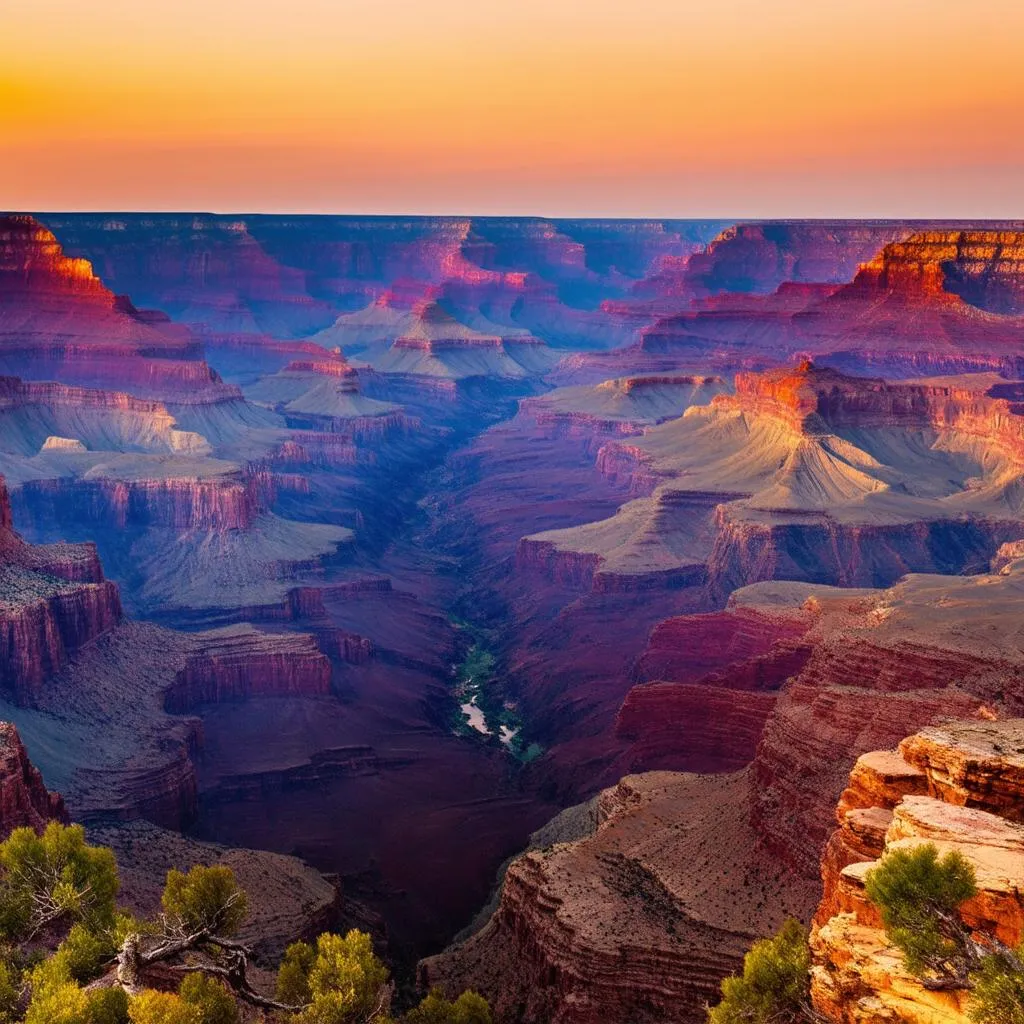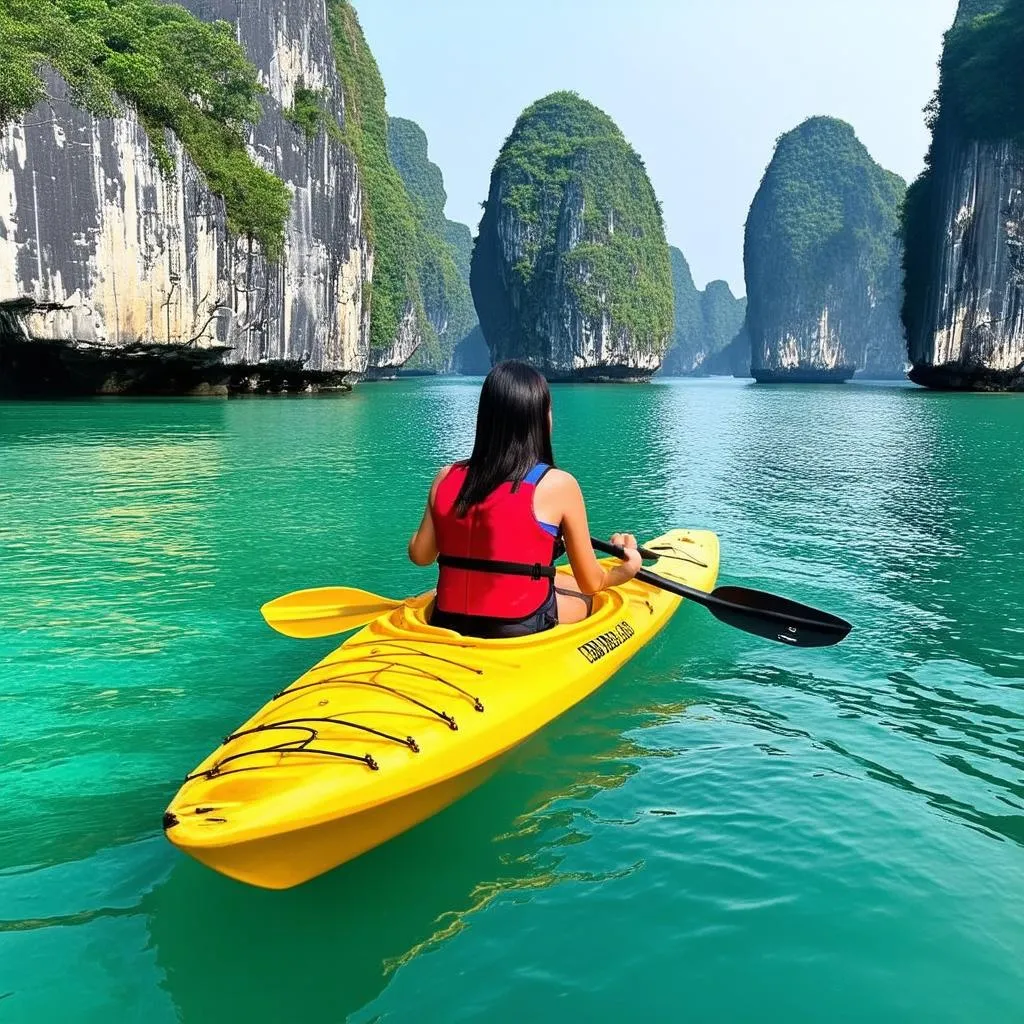Have you ever stood at the edge of the Grand Canyon, the wind whipping your hair as you gazed at the vastness before you, and thought, “This is more than just a hole in the ground?” Or perhaps you’ve wandered the bustling streets of Hanoi, the scent of street food mingling with the perfume of ancient temples, and realized, “This is an experience I’ll never forget.”
That, my friend, is the essence of a tourism product. It’s not just a place you visit or a thing you see. It’s a carefully crafted package of experiences designed to inspire, delight, and leave you with lasting memories.
Unpacking the Tourism Product: More Than Just a Pretty View
At its core, a tourism product is anything that can be offered to tourists for consumption and enjoyment. This encompasses a wide range of elements, tangible and intangible, that come together to create a holistic travel experience. Think of it as a puzzle where each piece, from accommodation and attractions to transportation and local culture, contributes to the bigger picture.
Here’s a breakdown:
Tangible Elements:
- Accommodation: Hotels, resorts, hostels, homestays, and even camping sites fall under this category.
- Attractions: Natural wonders like Ha Long Bay, historical landmarks like the Imperial Citadel of Hue, cultural experiences, and man-made attractions like theme parks are all key players.
- Transportation: This includes flights, trains, buses, taxis, and even bicycle rentals – essentially anything that gets you from point A to point B during your trip.
- Food and Beverage: From street food stalls to Michelin-star restaurants, culinary experiences form a significant part of the tourism product.
Intangible Elements:
- Culture and Heritage: The unique customs, traditions, art, and history of a destination add depth and meaning to the travel experience.
- Hospitality: The warmth and welcoming nature of the locals, the quality of service, and the overall feeling of being welcomed play a crucial role.
- Atmosphere: This refers to the overall vibe of a place, be it the romantic charm of Hoi An’s ancient town or the bustling energy of Ho Chi Minh City.
- Memories and Experiences: Ultimately, the most valuable souvenirs are the memories you make and the personal experiences you gather along the way.
 Grand Canyon Panorama
Grand Canyon Panorama
Why Understanding Tourism Products Matters
Whether you’re a seasoned traveler or planning your first trip, understanding what constitutes a tourism product can significantly enhance your travel experience.
- Informed Decisions: You can make informed choices about destinations and activities that align with your interests and budget.
- Value for Money: By understanding what’s included in a tourism product, you can ensure you’re getting the most value for your money.
- Enhanced Experiences: Knowing what to expect allows you to appreciate the different facets of a destination and engage with it on a deeper level.
Planning Your Trip: A Holistic Approach
When planning a trip, think beyond just booking flights and accommodation. Consider the experiences you want to have, the culture you want to immerse yourself in, and the memories you want to create.
Here are some questions to ask yourself:
- What are my interests? (History, nature, adventure, food, culture, etc.)
- What kind of budget am I working with?
- What kind of experiences am I looking for? (Relaxation, adventure, cultural immersion, etc.)
By answering these questions, you can start to piece together the elements that will make up your perfect tourism product.
Travelcar.edu.vn: Your Guide to Unforgettable Experiences
At Travelcar.edu.vn, we understand that travel is more than just ticking off destinations on a bucket list. It’s about creating stories, collecting moments, and connecting with the world around us. We offer a wide range of carefully curated tourism products, from immersive cultural tours to breathtaking natural adventures, all designed to help you experience Vietnam in all its glory.
Explore our website or get in touch with our travel experts today to start planning your dream trip!
 Kayaking in Ha Long Bay
Kayaking in Ha Long Bay
FAQs about Tourism Products
Q: What’s the difference between a tourist attraction and a tourism product?
A: A tourist attraction is a single point of interest, like the Temple of Literature in Hanoi. A tourism product bundles various elements, including attractions, accommodation, transportation, and more, to create a complete travel experience.
Q: How does the concept of Feng Shui apply to travel?
A: Feng Shui, the ancient Chinese practice of harmonizing energy, can be applied to travel by choosing destinations and accommodations that promote balance and positive energy. For instance, a serene beachside resort might be ideal for relaxation, while a bustling city center hotel could energize you for exploration.
Q: What are some examples of tourism products that focus on sustainability?
A: Eco-tours, farm-to-table dining experiences, and community-based tourism initiatives are great examples of sustainable tourism products that prioritize environmental conservation and cultural preservation.
Remember, travel is an investment – an investment in yourself, in your experiences, and in the world around you. By understanding the concept of a tourism product, you can ensure that your investment is worthwhile and that you return home with a suitcase full of incredible memories.